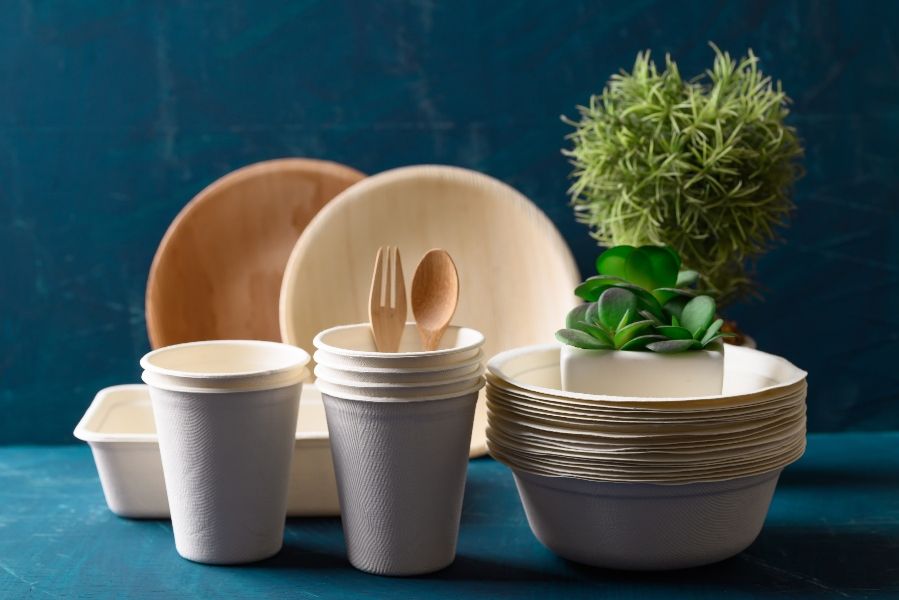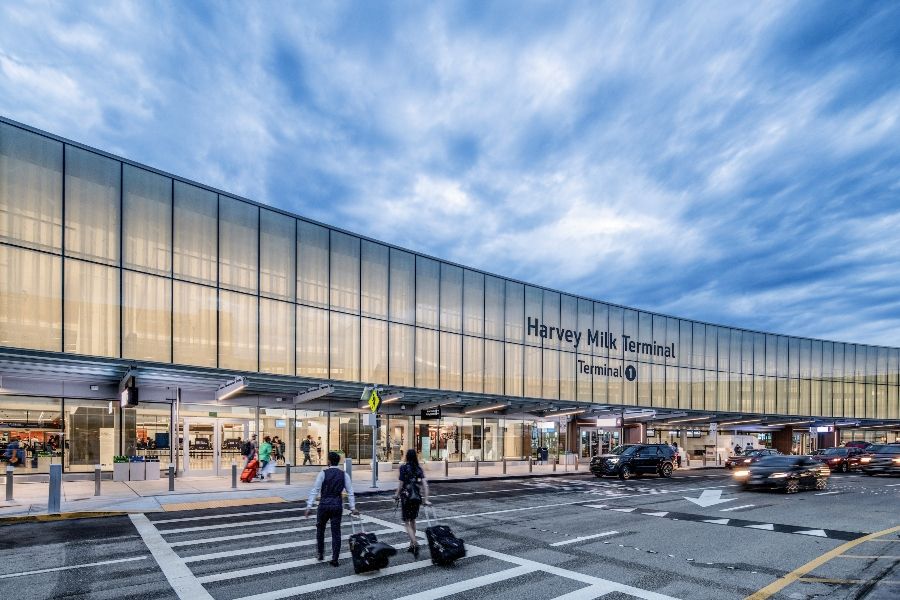As time has gone on, the pressures of climate change and pollution have only come to wear on the minds of the design industry that much more. From salvaging as much plastic from landfills as possible to enabling circular design principles, here are 11 sustainable design brands striving for a better tomorrow this Earth Day.
Framery
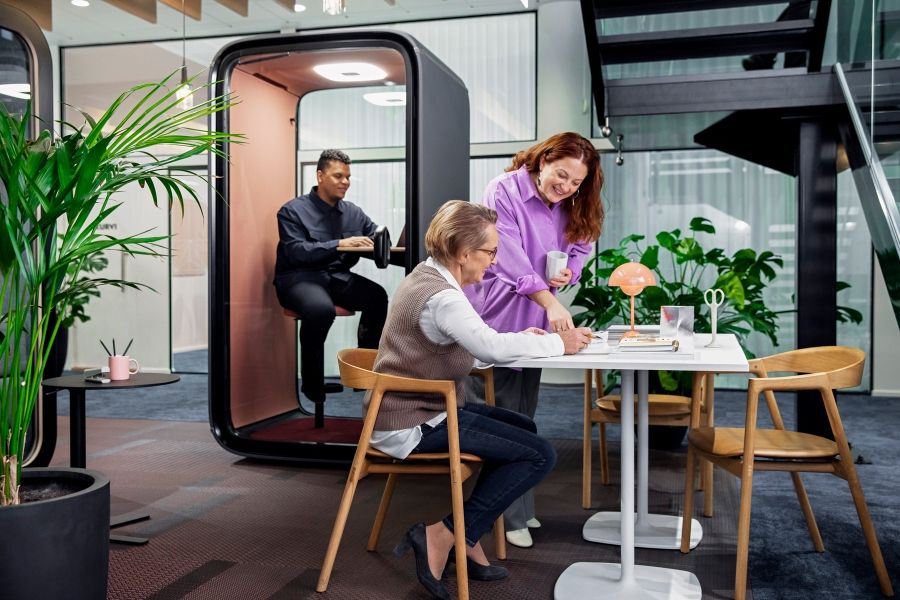
Framery is a Finland-based acoustic pod manufacturer offering pods, phone booths and soundproof private spaces that address the need for solitude and privacy in open offices, schools, airports and other public environments. The brand’s most recent product launch, Framery One, is the first and only product of its type to receive Greenguard Gold, with circularity being the foundation of its design.
Framery has also committed to the UN Global Compact, a pact that encourages businesses and firms worldwide to adopt sustainable and socially responsible policies, in addition to following the Science Based Targets Initiative.
Kohler
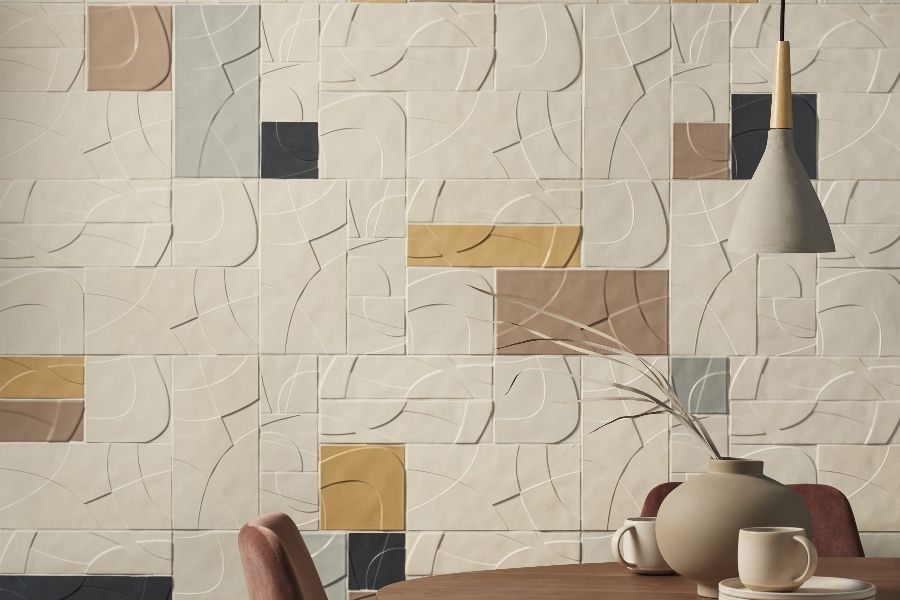
A massive name in the kitchen and bath industry already, Kohler continues to push towards a more sustainable home through innovations in its plumbing fixtures and design elements. However, the focus of their inclusion here goes to their WasteLAB, an entire factory dedicated to producing new, innovative design materials from the company’s waste products.
The most recent innovation, the Abstra Collection, uses nearly 100% recycled pottery to create a series of brushed and matte tiles for residential and commercial projects.
Kirei

Kirei develops architectural design elements and has worked with designers and architects since 2002 to develop healthier acoustics for spaces. Their EchoPanel product line is a low-VOC Red List Free material made from over 60% recycled PET, with 235 Single-Use plastic bottles being diverted with each panel.
Their most recent launch, the Air Baffle, enhances this even further, being made entirely from recycled plastic water bottles and recycled shoes.
Native Trails
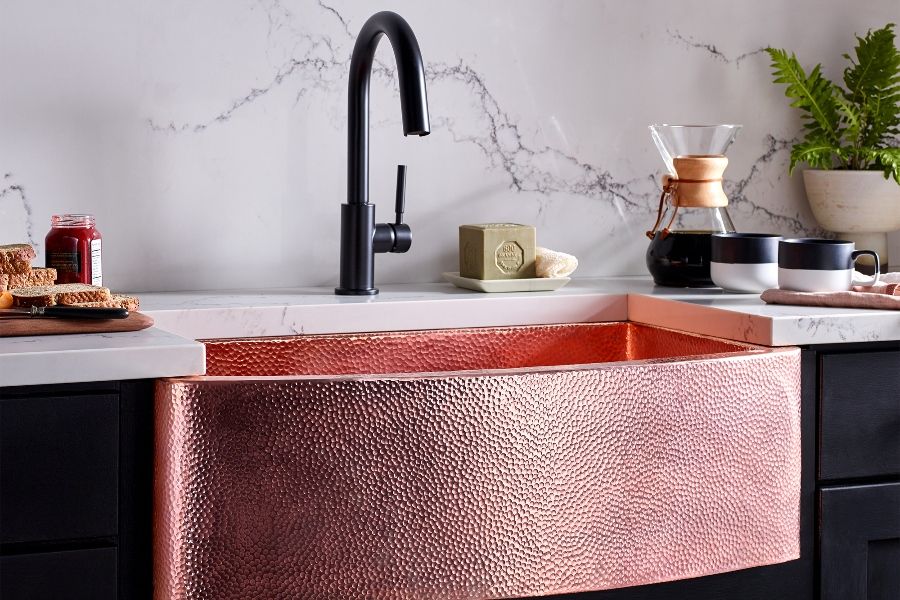
Native Trails blends artisan tradition, sustainability and fair-trade practices throughout their entire product line. Originally starting with copper sinks, the product line has since gone far beyond with sinks, vanities, bathtubs and a wide range of home décor products pulled from reclaimed wood, metal and concrete. Since starting in 1996, Native Trails has become a pioneering force for sustainable, artisan materials in the world of kitchen and bath design.
Surface Resources

Surface Resources fills a unique, yet necessary niche in the design and building industry by sourcing a variety of surfaces and tiles in a multitude of materials. Founded originally by Heidi Steele, the company helps guide and educate architects and professionals on sustainable builds and designs for a variety of projects.
Two brands the company works with today, Mosa tiles (Cradle to Cradle Gold) and Amorim Cork flooring, follow some of the most stringent sustainability guidelines, making each carbon negative in their manufacturing footprint.
Luxxbox
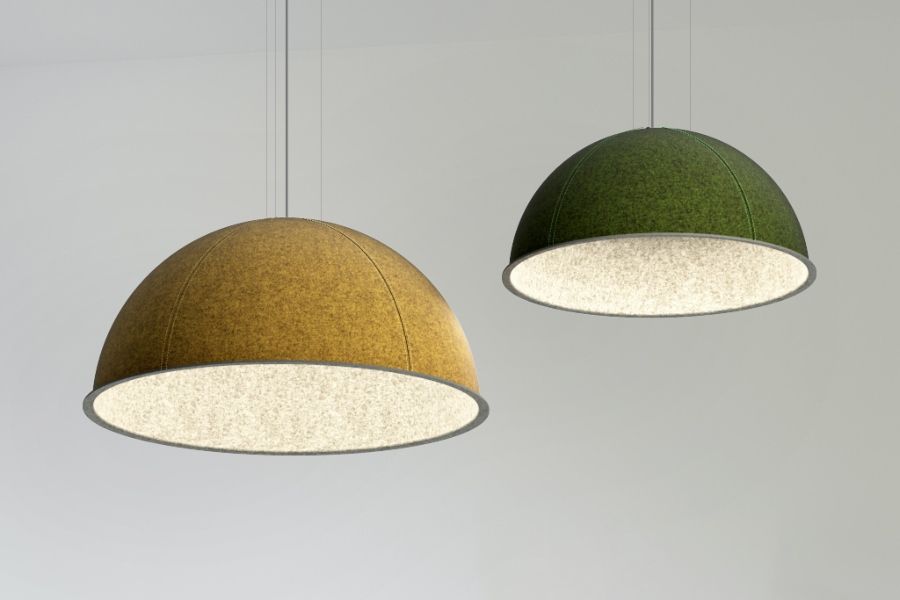
Luxxbox’s acoustic lighting fixtures feature low-VOCs and contain no adhesives, in addition to being made from post-consumer recycled PET. The fixtures themselves are also 100% recyclable, with the material receiving GreenTag certification. Through their product stewardship program, all Luxxbox products can be returned to a selected distributor for recycling at the end of their product lifecycle.
Luxxbox also regularly works to re-purpose or refurbish its products as they are able to, in order to prolong each life.
Cosentino
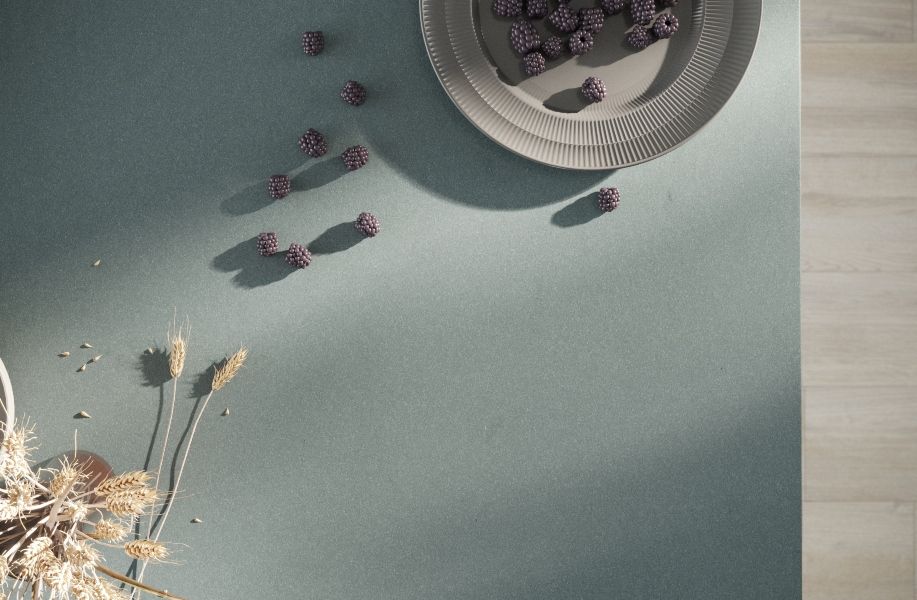
Known for their surfaces, Cosentino recently made waves in the quartz and engineered stone market by debuting its first-ever carbon neutral product line by Silestone. The new manufacturing process uses 99% reused water, 100% renewable energy and zero water discharge or particle emissions to create a new hybrid of raw mineral and recycled materials.
Cosentino has also vowed to offset any and all emissions leftover from the process for the entire lifecycle of the new Silestone Sunlit Days product line.
Resource Furniture
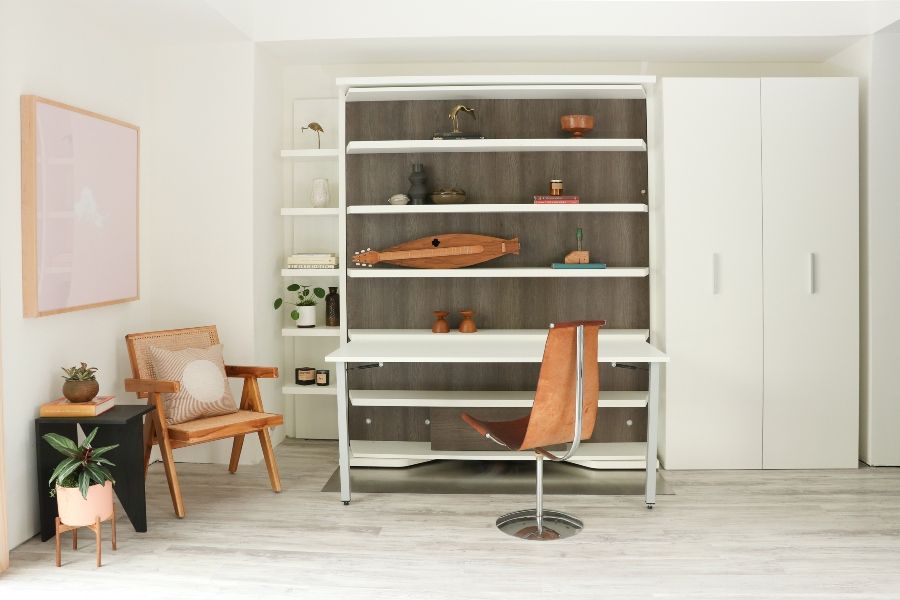
Resource Furniture adopts a modular approach to its product, meaning its furniture is not only adaptable for flex space, but that individual parts can be purchased and replaced without having to throw out the entire piece in the event of wear or damage. The products themselves are made from primarily organic materials, using water-based lacquers and biodegradable mattresses.
All resource furniture products are also constructed with FSC-CoC certified, TSCA Title VI and CARB2-compliant materials.
Artaic
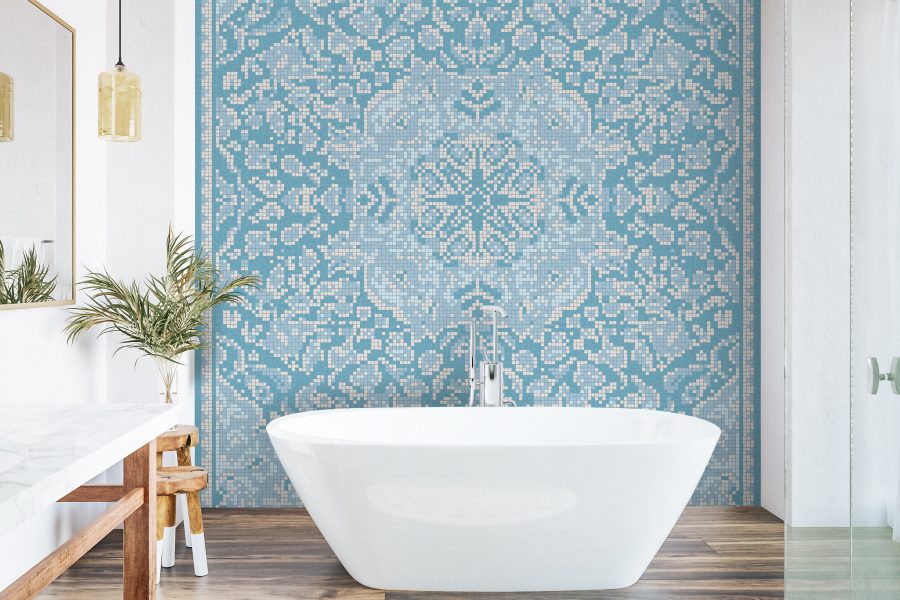
Artaic is a leading mosaic manufacturer that uses a combination of robotic technology and their own design tools to customize, design and fabricate their glass tile installations. The tiles themselves, made of sintered glass, are made entirely from recycled car windshields.
Emeco
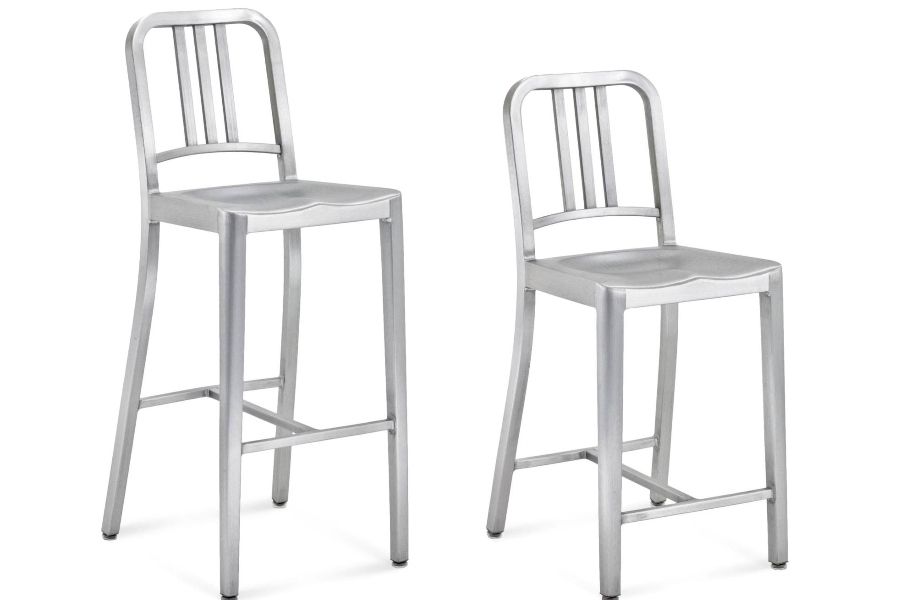
Emeco is a longstanding American company having been founded in 1944, and is perhaps best known for its 1006 Navy Chair, which is made from salvaged aluminum from US Navy submarines. The chairs themselves have a projected lifespan of 150 years and, at the end of that lifecycle are 100% recyclable.
In addition, the company strives to make chairs from at least 80% recycled materials in every production. It also largely sources these materials from within the US to reduce the carbon cost of transport from overseas.
Nassimi

Based in New York City, Nassimi LLC originally had its start in creating the first faux leather products that were phthalate-free. Since then, the company has continued to earn its marks as a market innovator, setting industry standards by pushing its own environmental goals further and further. Having rid their product line of fire-resistant chemicals and biocides long before the rest of the industry caught up, their latest fabric Supreen provides a durable, waterproof fabric without the use of harmful PFAS.
The company promotes a culture of transparency with itself and its partners, establishing benchmark data for energy consumption, water consumption and chemicals of high concern that it shares freely. Through water recycling, air recycling and solar panel installations on its manufacturing facilities, the company has been able to cut energy costs related to its products by nearly 80%.
